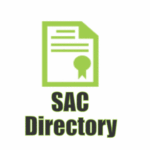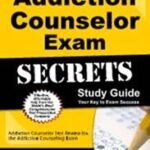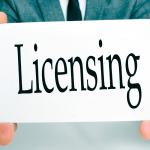
Preparing for the ICRC Exam
Preparing for the ICRC exam is a significant step for professionals in addiction treatment and counseling. It can sometimes feel overwhelming, but you can navigate it successfully with the right resources and strategies. In this guide, I’ll share some personal insights and tips to help you ace this critical exam.
My Experience with the ICRC Exam
When I first decided to take the ICRC exam, I felt a mix of excitement and anxiety. It was a crucial step in my career, but preparing for such a comprehensive test seemed daunting. I remember gathering as many resources as possible—books, online courses, and study groups. Each day was a new challenge and a step closer to my goal.
One particularly memorable day, I was studying a complex topic in treatment planning when my friend, who was also preparing for the exam, called me up. We spent hours discussing our study methods, sharing tips, and venting about our challenges. These interactions kept me motivated and made the process less isolating.
Understanding the ICRC Exam
The ICRC exam covers various domains, including clinical evaluation, treatment planning, counseling, and case management. It’s designed to assess your knowledge and skills in these critical areas. Familiarizing yourself with the exam structure and content is the first step in your preparation.
Key Areas of Focus
Clinical Evaluation: This involves understanding how to assess a client’s needs and diagnose substance use disorders. Think of it as the foundation of effective counseling—it’s where you gather the essential information to tailor your approach to each client.
Treatment Planning: Developing effective treatment plans based on clinical evaluations. This requires a solid understanding of both the theory and practice of creating strategies that address the unique needs of your clients.
Counseling: Techniques and methods for providing effective addiction counseling. This includes a range of therapeutic approaches, from cognitive-behavioral therapy to motivational interviewing, all aimed at helping clients achieve lasting recovery.
Case Management: Managing cases and coordinating care for clients. This involves working with other professionals and services to ensure your clients receive comprehensive support, from medical care to social services.
Study Tips and Strategies
Create a Study Schedule
Break down your study material into manageable chunks and set a timetable. Consistency is key. For example, I found it helpful to dedicate mornings to reading textbooks and afternoons to taking practice exams. This structured approach helped me cover all necessary content without feeling overwhelmed.
Use Multiple Resources
Don’t rely on just one source of information. Use books and online courses, and join study groups. One of my favorite resources was an online course that offered interactive quizzes and feedback. It made studying more engaging and helped me identify areas where I needed more focus.
Practice with Sample Questions
Familiarize yourself with the exam format by practicing with sample questions and past papers. I remember the relief I felt when encountering similar questions on the exam—it was like meeting an old friend!
Take Care of Yourself
Don’t neglect your health. Get enough sleep, eat well, and take breaks during your study sessions. On weekends, I went for walks and spent time with friends and family to recharge my batteries.
Personal Reflections
One thing I realized during my preparation was the importance of balance. Getting so caught up in studying is easy that you forget to care for yourself. I made sure to set aside time for exercise and relaxation. There were days when I felt overwhelmed, but talking to fellow candidates and sharing our experiences helped a lot. We supported each other and kept each other motivated.
I vividly recall a moment of doubt a few weeks before the exam. I questioned whether I was truly ready. However, a conversation with my mentor reminded me how far I’d come and the importance of self-belief. That pep talk was a turning point in my preparation.
The Day of the Exam
On the exam day, I felt a mix of nerves and excitement. I had prepared as much as possible, and it was time to put my knowledge to the test. The questions were challenging, but I stayed focused and paced myself. I felt accomplished when I walked out of the exam room. It was a difficult journey, but one that was worth it.
One advice I’d give is to arrive early and take a few minutes to relax before entering the exam room. Deep breathing exercises helped me stay calm and centered, ready to tackle whatever the exam threw my way.
Preparing for the ICRC exam is a significant milestone in your career as an addiction counselor. It requires dedication, hard work, and a balanced approach. Remember to use various resources, practice regularly, and care for your well-being. Most importantly, believe in yourself and stay motivated. With the proper preparation, you can succeed in the ICRC exam and take the next step in your professional journey.
Feel free to ask questions, share your thoughts, and contribute to our forums. Explore our blog for more insights, tips, and education. If you need personalized guidance, don’t hesitate to schedule a consultation or email us at info@substanceabusecertification.org.
We’re here to support your journey every step of the way.
Study Tips
- Create a Study Schedule: Allocate specific times for each topic and stick to it.
- Use Multiple Resources: Utilize textbooks, online courses, and practice exams.
- Join Study Groups: Collaborate with peers to share knowledge and resources.
- Practice Self-Care: Maintain a healthy balance between study and relaxation to avoid burnout.
Resources
- ICRC Official Website: ICRC
- ReadyToTest: ReadyToTest
- CCAPP Continuing Education: CCAPP
- Online Courses: Websites like Coursera and Udemy offer relevant courses.
- Textbooks: Recommended readings include “Fundamentals of Addiction Counseling.”
Practice Test Questions and Answers
Below are 20 sample questions along with their correct answers to help you practice and assess your readiness for the addiction counselor certification exam:
- Which theory suggests that addiction is due to brain dysfunction?
- A) Behavioral model
- B) Psychological model
- C) Medical model
- D) Social model
- Correct Answer: C) Medical model
- What is the primary goal of motivational interviewing in addiction counseling?
- A) To confront denial
- B) To give direct advice
- C) To explore ambivalence
- D) To teach coping skills
- Correct Answer: C) To explore ambivalence
- What does the term ‘dual diagnosis’ refer to in addiction treatment?
- A) Treating two addictions at once
- B) The combination of mental health and substance use disorders
- C) Diagnosing addiction in adolescents and adults
- D) Identifying the stages of addiction
- Correct Answer: B) The combination of mental health and substance use disorders
- Which of the following is a characteristic of the disease model of addiction?
- A) It includes a genetic predisposition
- B) It focuses on moral weakness
- C) It considers addiction a choice
- D) It does not involve the brain
- Correct Answer: A) It includes a genetic predisposition
- What is the primary focus of Cognitive Behavioral Therapy (CBT) in treating addiction?
- A) Exploring past traumas
- B) Modifying dysfunctional thoughts and behaviors
- C) Encouraging spiritual growth
- D) Building family relationships
- Correct Answer: B) Modifying dysfunctional thoughts and behaviors
- What is the first stage of the transtheoretical model of change?
- A) Action
- B) Contemplation
- C) Precontemplation
- D) Maintenance
- Correct Answer: C) Precontemplation
- Which substance is primarily associated with the development of delirium tremens during withdrawal?
- A) Opioids
- B) Cocaine
- C) Alcohol
- D) Cannabis
- Correct Answer: C) Alcohol
- What is the primary legal ethical concern for addiction counselors?
- A) Billing accuracy
- B) Maintaining certification
- C) Confidentiality and privacy of client information
- D) Personal boundaries
- Correct Answer: C) Confidentiality and privacy of client information
- Which medication is commonly used to help manage opioid addiction?
- A) Disulfiram
- B) Methadone
- C) Naltrexone
- D) Buprenorphine
- Correct Answer: B) Methadone
- In addiction counseling, what does ‘HALT’ stand for?
- A) Happy, Active, Loving, Thriving
- B) Hungry, Angry, Lonely, Tired
- C) Hopeful, Alert, Lighthearted, Trusting
- D) Healthy, Aware, Learning, Teaching
- Correct Answer: B) Hungry, Angry, Lonely, Tired
- What role does ‘enabling’ play in the context of addiction?
- A) It supports recovery efforts
- B) It describes behaviors that prevent others from facing the consequences of their addiction
- C) It helps in relapse prevention
- D) It fosters independence
- Correct Answer: B) It describes behaviors that prevent others from facing the consequences of their addiction
- How does the ‘social model’ of addiction treatment primarily view recovery?
- A) As an individual journey
- B) As a process facilitated by peer support and social reinforcement
- How does the ‘social model’ of addiction treatment primarily view recovery?
- A) As an individual journey
- B) As a process facilitated by peer support and social reinforcement
- C) As a medical issue only
- D) As a spiritual journey
- Correct Answer: B) As a process facilitated by peer support and social reinforcement
- What is considered a fundamental ethical obligation for addiction counselors?
- A) To maintain professional boundaries
- B) To attend all conferences
- C) To have personal experience with addiction
- D) To write articles
- Correct Answer: A) To maintain professional boundaries
- What does ‘harm reduction’ aim to accomplish in the treatment of addiction?
- A) It aims to minimize the negative effects of addictive behaviors
- B) It aims to eliminate addiction completely
- C) It focuses on legal consequences
- D) It emphasizes moral behavior
- Correct Answer: A) It aims to minimize the negative effects of addictive behaviors
- Which neurotransmitter is most commonly associated with the reward system affected by drug use?
- A) Serotonin
- B) Acetylcholine
- C) Dopamine
- D) GABA
- Correct Answer: C) Dopamine
- What is the primary purpose of a 12-step program?
- A) To provide medical treatment
- B) To offer a structured path toward spiritual and emotional recovery
- C) To conduct scientific research
- D) To provide housing
- Correct Answer: B) To offer a structured path toward spiritual and emotional recovery
- What ethical issue arises from a counselor’s self-disclosure?
- A) Increased credibility
- B) Potential boundary issues
- C) Enhanced empathy
- D) Faster client recovery
- Correct Answer: B) Potential boundary issues
- Which model of addiction treatment emphasizes the impact of family, peers, and community?
- A) Moral model
- B) Ecological model
- C) Disease model
- D) Medical model
- Correct Answer: B) Ecological model
- What should an addiction counselor do if they suspect a client is at risk of harming themselves or others?
- A) Keep it confidential
- B) Discuss it in the next session
- C) Contact the appropriate authorities or crisis intervention teams
- D) Handle it alone
- Correct Answer: C) Contact the appropriate authorities or crisis intervention teams
Frequently Asked Questions
What is the best way to prepare for the ICRC exam?
- Create a structured study plan, use various resources, and practice with sample questions. A comprehensive study schedule that includes daily reading, online courses, and regular practice tests will ensure thorough preparation.
How long should I study for the ICRC exam?
- This depends on your familiarity with the material, but a consistent study schedule over several months is recommended. Ideally, plan for at least 3-6 months of dedicated study time to cover all the topics adequately.
Are there online resources available for ICRC exam preparation?
- Many online courses, study guides, and practice exams are available to aid your preparation. Websites like ReadyToTest and CCAPP Continuing Education offer excellent resources.
What are the main topics covered in the ICRC exam?
- The exam covers screening and assessment, treatment planning, counseling skills, and ethical standards. It tests your knowledge and competence in these critical areas to ensure you are well-prepared for professional practice.
How can I manage exam anxiety?
- Practice relaxation techniques, ensure well-prepared, and maintain a healthy balance between study and rest. Techniques like deep breathing exercises, meditation, and regular physical activity can help reduce stress and improve focus.
Take the First Step
Start your ICRC exam preparation today if you’re ready to take your career to the next level. Visit ICRC’s official website for more information and resources.
Feel free to ask more questions, share your thoughts in the comments, and explore our forums and blog for additional resources. You can schedule a consultation or email us at info@substanceabusecertification.org for personalized guidance.





